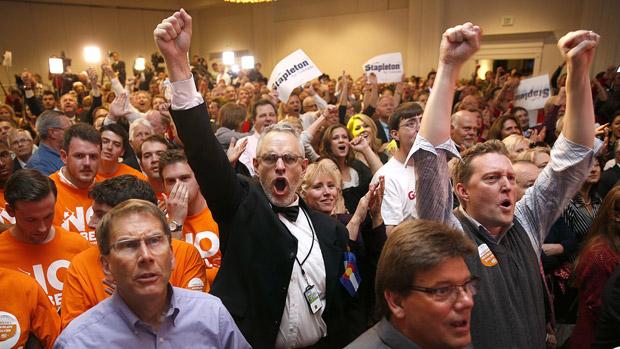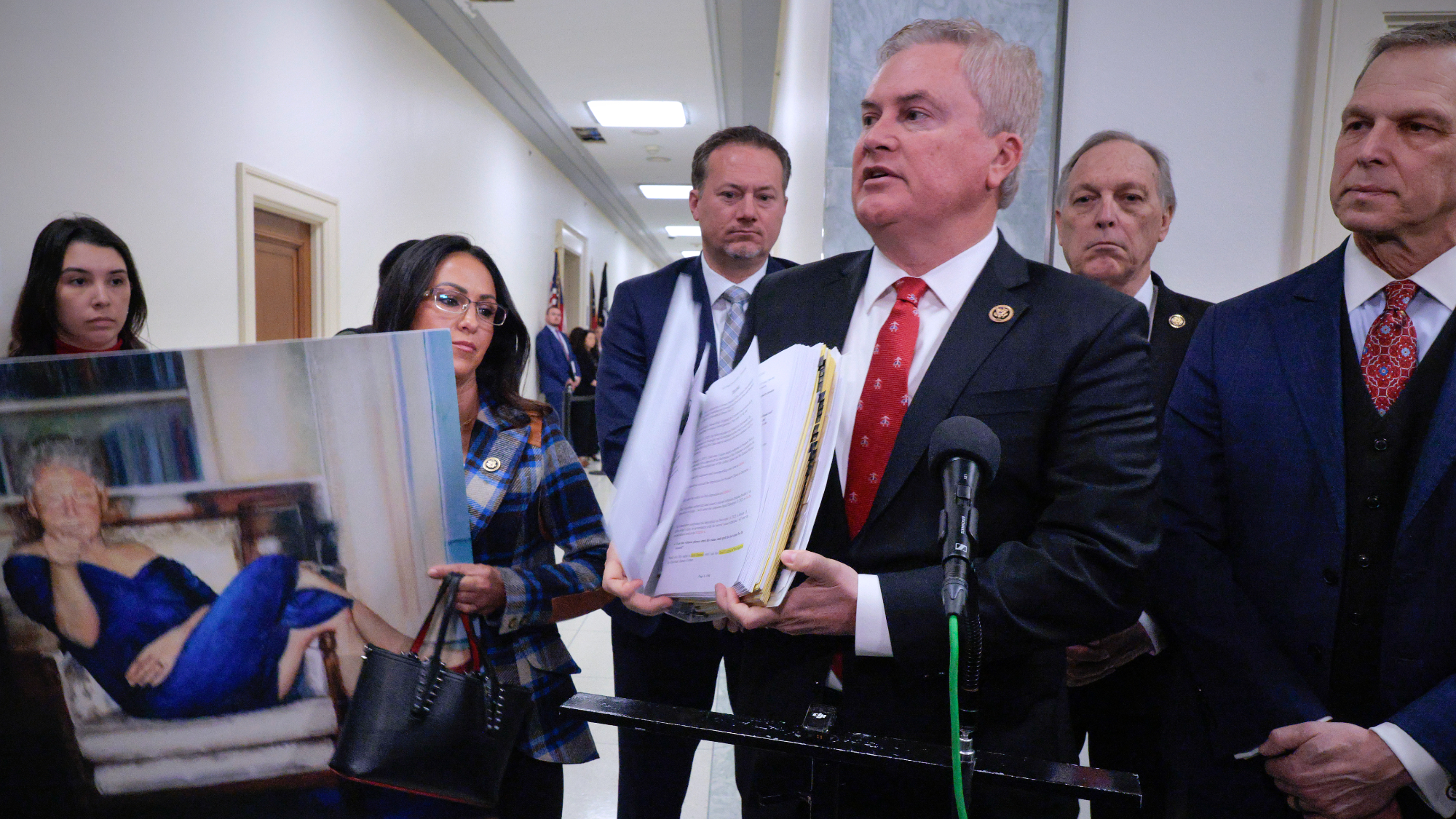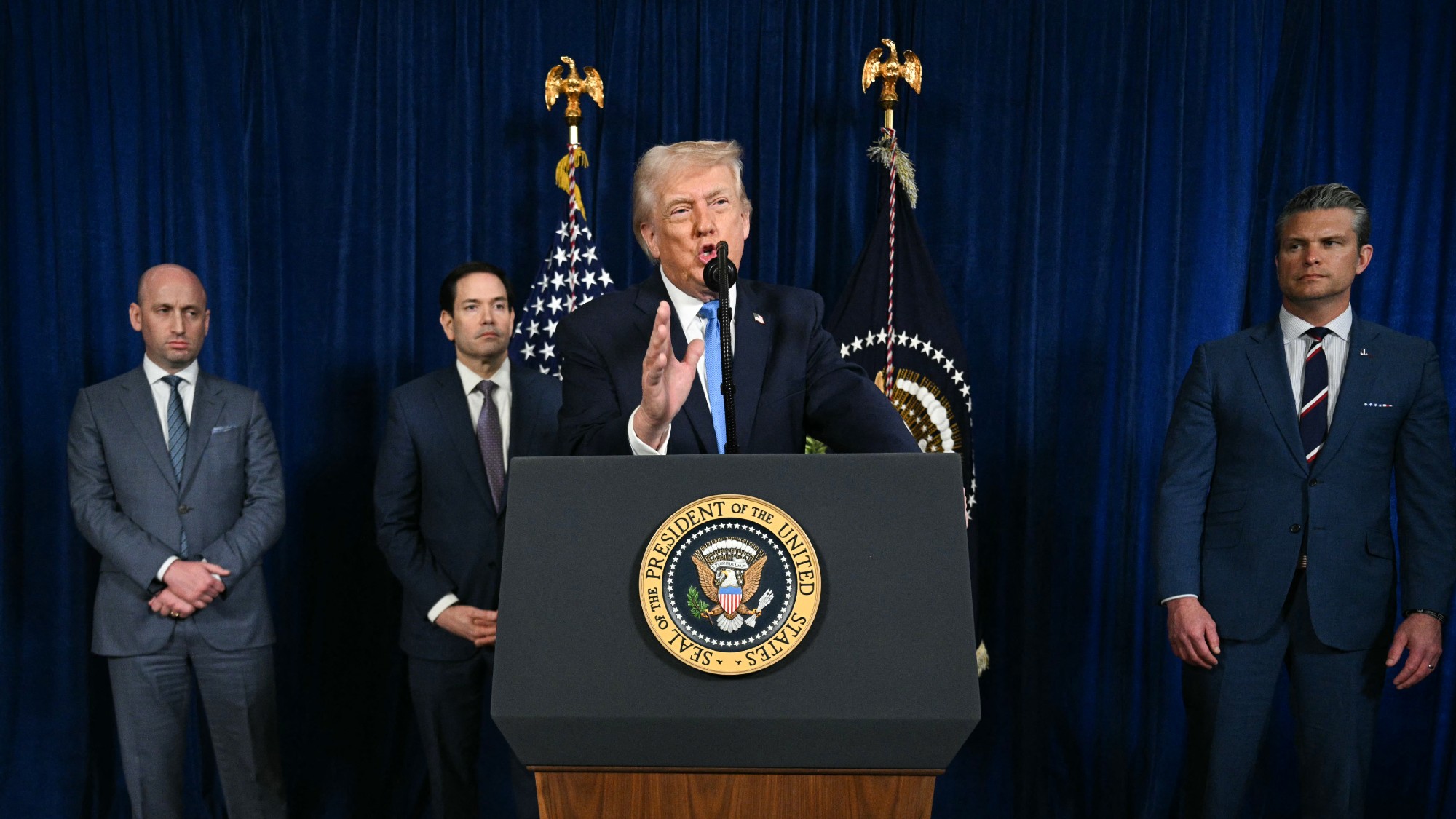US midterm elections: what next after Republican victory?
Republican party overwhelms Democrats in a sweeping election victory across the United States

A free daily email with the biggest news stories of the day – and the best features from TheWeek.com
You are now subscribed
Your newsletter sign-up was successful
The Republican party has taken control of the US Senate in midterm elections that will reset the political landscape of Barack Obama’s final two years in office.
The Republicans, who needed to take six states from the Democrats to win control of the Senate, have already taken seven states and are expected to gain more as votes continue to be counted.
The Democrats have now lost control of both chambers, after the Republicans took back the House of Representatives in 2010, further restricting President Barack Obama’s ability to push through his political agenda. So what happens next?
The Week
Escape your echo chamber. Get the facts behind the news, plus analysis from multiple perspectives.

Sign up for The Week's Free Newsletters
From our morning news briefing to a weekly Good News Newsletter, get the best of The Week delivered directly to your inbox.
From our morning news briefing to a weekly Good News Newsletter, get the best of The Week delivered directly to your inbox.
How important are the midterms?
The 2014 midterms, which fall halfway into Obama’s second four-year term in office, offered voters a chance to elect the entire House of Representatives, around one third of the 100-seat Senate and 36 out of 50 state governors. Midterm elections determine which party takes control of Congress and the Senate, but tend to attract fewer voters to the polling stations than presidential elections.
What happened overnight?
Republicans seized Democratic Senate seats in North Carolina, Colorado, Iowa, West Virginia, Arkansas, Montana and South Dakota. This means the party now controls 52 seats, and is tipped to win more. It is also projected to increase its majority in the House of Representatives to levels "not seen since before World War Two", says the BBC.
A free daily email with the biggest news stories of the day – and the best features from TheWeek.com
Why did the Democrats do so badly?
Historically, the party in control of the White House tends to lose strength in Congress and the Senate in midterm elections – but the results are worse than many Democrats had feared. "Virtually every Republican candidate campaigned on only one thing: what they called the failure of President Obama," says the New York Times. The Republicans packaged the election as a referendum on Obama’s competency and it appears that voters were dissatisfied. Even Democratic candidates distanced themselves from Obama during their campaigns because of his unpopularity. Analysts suggest that voters are yet to feel the effects of any economic recovery and that world events such as Ebola and the conflict in Iraq and Syria exacerbated the public’s already gloomy mood.
How will the results affect Barack Obama?
The president will need to appease the dissatisfied public, but with new limitations on his ability to push through his political agenda. The Republicans can also thwart his ability to name new federal judges, cabinet members and senior government officials. One of the biggest effects is the power of the Republican party to set the political agenda. Republican Senator of Kentucky, Mitch McConnell, currently the minority leader of the Senate, will become majority leader, deciding which bills come to the floor. However, even if his party tries to pass a wish list of legislation, Obama could simply veto the bills with which he disagrees, says the BBC. The president will have to balance his own interests in trying to secure a successful legacy, perhaps by compromising with Republicans to push through legislation, with the interests of his own party, which faces another election in 2016.
What do the results mean for the presidential election?
The "thumping" taken by Democrats might put pressure on Hillary Clinton to declare her intentions for presidency on an accelerated schedule, says The Independent. "It is possible that not only she but also several Republican presidential aspirants will declare in the coming weeks, thus firing the starting pistol on the 2016 race," says the newspaper.
While voters took out their frustrations on the president this time round, it is possible that they will vent their spleen on the Senate in two years’ time. The BBC’s Rajesh Mirchandani suggests Democrat candidates can now pit their campaign against a Republican Congress and Senate, while Republican candidates can argue that, with control of both chambers, it is only a Democrat president standing in their way.
Will there be any international effects?
Like many second-term presidents, Obama is expected to focus heavily on foreign policy, says the Wall Street Journal. He is attempting to strengthen ties with Asia, end the US combat mission in Afghanistan and negotiate a nuclear deal with Iran, as well as continue the operation against Islamic State. But the Washington Post suggests that other governments, particularly in Asia, may now view him as a "lame duck". Nevertheless, Tom Packer at the not-for-profit media outlet The Conversation says international trade deals, such as the US-EU deal, could actually be advanced: "On trade the Republican party tends to agree more with President Obama than his own party does."
-
 Crisis in Cuba: a ‘golden opportunity’ for Washington?
Crisis in Cuba: a ‘golden opportunity’ for Washington?Talking Point The Trump administration is applying the pressure, and with Latin America swinging to the right, Havana is becoming more ‘politically isolated’
-
 5 thoroughly redacted cartoons about Pam Bondi protecting predators
5 thoroughly redacted cartoons about Pam Bondi protecting predatorsCartoons Artists take on the real victim, types of protection, and more
-
 Palestine Action and the trouble with defining terrorism
Palestine Action and the trouble with defining terrorismIn the Spotlight The issues with proscribing the group ‘became apparent as soon as the police began putting it into practice’
-
 How corrupt is the UK?
How corrupt is the UK?The Explainer Decline in standards ‘risks becoming a defining feature of our political culture’ as Britain falls to lowest ever score on global index
-
 Clintons defy House GOP on Epstein subpoenas
Clintons defy House GOP on Epstein subpoenasSpeed Read The House has already received what ‘little information we have,’ the Clintons said
-
 The high street: Britain’s next political battleground?
The high street: Britain’s next political battleground?In the Spotlight Mass closure of shops and influx of organised crime are fuelling voter anger, and offer an opening for Reform UK
-
 What is the Donroe Doctrine?
What is the Donroe Doctrine?The Explainer Donald Trump has taken a 19th century US foreign policy and turbocharged it
-
 Is a Reform-Tory pact becoming more likely?
Is a Reform-Tory pact becoming more likely?Today’s Big Question Nigel Farage’s party is ahead in the polls but still falls well short of a Commons majority, while Conservatives are still losing MPs to Reform
-
 ‘This estrangement from death has beget euphemisms’
‘This estrangement from death has beget euphemisms’Instant Opinion Opinion, comment and editorials of the day
-
 Taking the low road: why the SNP is still standing strong
Taking the low road: why the SNP is still standing strongTalking Point Party is on track for a fifth consecutive victory in May’s Holyrood election, despite controversies and plummeting support
-
 Will Trump actually prosecute Obama for 'treason'?
Will Trump actually prosecute Obama for 'treason'?Today's Big Question Or is this just a distraction from the Jeffrey Epstein scandal?